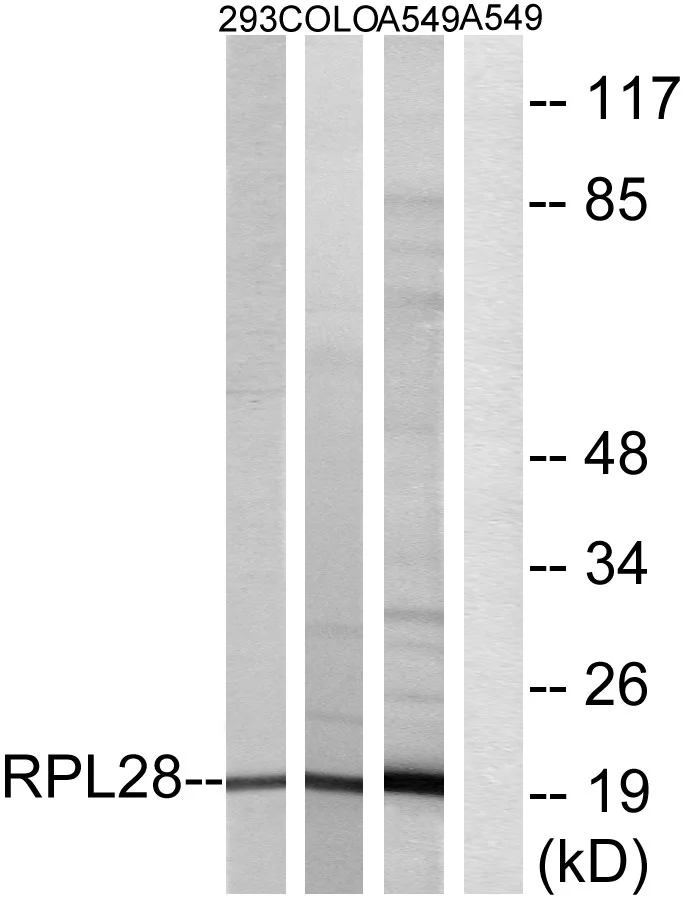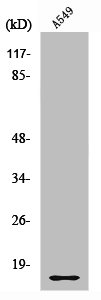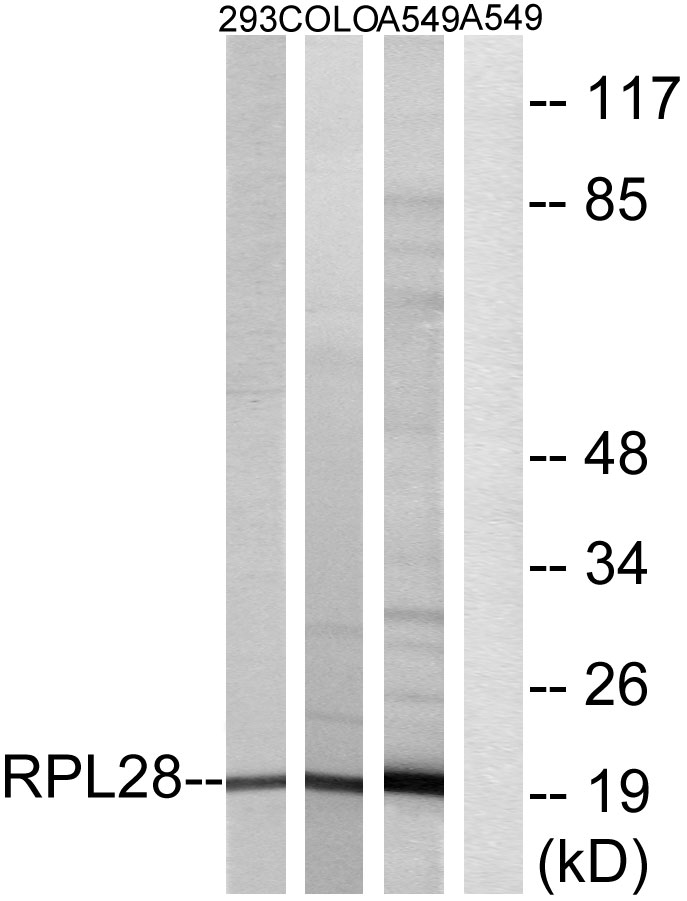
WB analysis of A549, 293, and COLO cell lysates using GTX87242 RPL28 antibody. The lane on the right is blocked with the synthesized peptide.
RPL28 antibody
GTX87242
ApplicationsWestern Blot
Product group Antibodies
ReactivityHuman, Mouse
TargetRPL28
Overview
- SupplierGeneTex
- Product NameRPL28 antibody
- Delivery Days Customer9
- Application Supplier NoteWB: 1:500~1:1000. *Optimal dilutions/concentrations should be determined by the researcher.Not tested in other applications.
- ApplicationsWestern Blot
- CertificationResearch Use Only
- ClonalityPolyclonal
- ConjugateUnconjugated
- Gene ID6158
- Target nameRPL28
- Target descriptionribosomal protein L28
- Target synonymsL28, eL28, large ribosomal subunit protein eL28, 60S ribosomal protein L28
- HostRabbit
- IsotypeIgG
- Protein IDP46779
- Protein NameLarge ribosomal subunit protein eL28
- Scientific DescriptionRibosomes, the organelles that catalyze protein synthesis, consist of a small 40S subunit and a large 60S subunit. Together these subunits are composed of 4 RNA species and approximately 80 structurally distinct proteins. This gene encodes a ribosomal protein that is a component of the 60S subunit. The protein belongs to the L28E family of ribosomal proteins. It is located in the cytoplasm. Variable expression of this gene in colorectal cancers compared to adjacent normal tissues has been observed, although no correlation between the level of expression and the severity of the disease has been found. As is typical for genes encoding ribosomal proteins, there are multiple processed pseudogenes of this gene dispersed through the genome. Alternative splicing results in multiple transcript variants encoding distinct isoforms.[provided by RefSeq, Oct 2008]
- ReactivityHuman, Mouse
- Storage Instruction-20°C or -80°C,2°C to 8°C
- UNSPSC12352203
References
- Koren SA, Hamm MJ, Meier SE, et al. Tau drives translational selectivity by interacting with ribosomal proteins. Acta Neuropathol. 2019,137(4):571-583. doi: 10.1007/s00401-019-01970-9Read this paper
- Meier S, Bell M, Lyons DN, et al. Pathological Tau Promotes Neuronal Damage by Impairing Ribosomal Function and Decreasing Protein Synthesis. J Neurosci. 2016,36(3):1001-7. doi: 10.1523/JNEUROSCI.3029-15.2016Read this paper
- Meier S, Bell M, Lyons DN, et al. Identification of Novel Tau Interactions with Endoplasmic Reticulum Proteins in Alzheimer's Disease Brain. J Alzheimers Dis. 2015,48(3):687-702. doi: 10.3233/JAD-150298Read this paper




